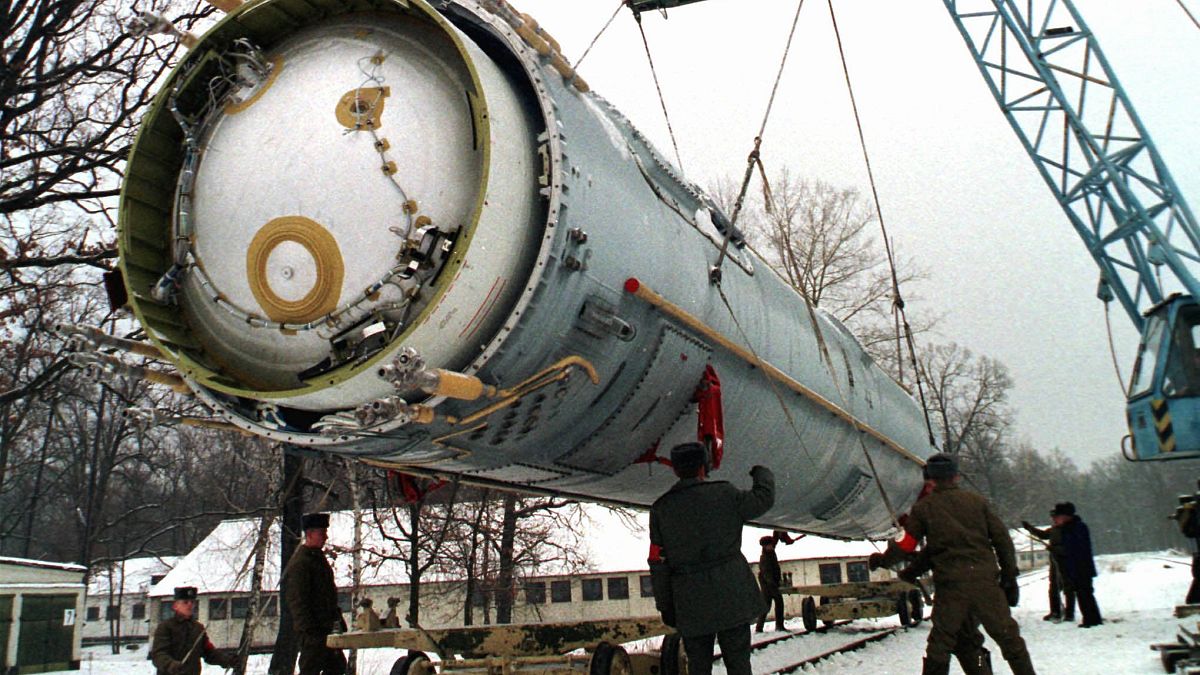Ukraine’s President, Volodymyr Zelenskyy, recently clarified that Ukraine is not currently pursuing nuclear weapons but emphasized the need for NATO membership for security against Russian aggression. Zelenskyy stated that Ukraine’s only other option aside from joining NATO would be nuclear weapons, as he highlighted the difficult position Ukraine finds itself in while still fending off Moscow’s invasion. However, he later explained that Ukraine has no intention of developing weapons of mass destruction, reiterating its commitment to nuclear non-proliferation.
In 1994, Ukraine gave up its nuclear arsenal in exchange for security guarantees from major nuclear powers such as the US, the UK, and Russia through the Budapest Memorandum. However, two decades later, Russia illegally invaded Ukraine, annexed Crimea, and occupied territories in the east of the country. This led Ukraine to seek NATO membership for its security, given the repeated violations of its sovereignty by Moscow. Despite the assurances in the Budapest Memorandum, Ukraine felt that handing over its nuclear weapons was a mistake, especially considering Russia’s continued development and modernization of its nuclear arsenal.
Russian President Vladimir Putin responded to Zelenskyy’s statements by asserting that Moscow would not allow Ukraine to obtain nuclear weapons and would respond accordingly if such a move were made. However, Ukraine’s Head of the Office of the President, Andrii Yermak, emphasized that Ukraine’s decision to relinquish nuclear weapons in 1994 was its own choice. Yermak highlighted that Ukraine seeks security guarantees rather than nuclear weapons and expressed that Ukraine has not reciprocated in the same unfair and unjust manner as Russia in the ongoing conflict.
The Budapest Memorandum pledged security assurances to Ukraine in connection with its accession to the Treaty on the Nonproliferation of Nuclear Weapons as a non-nuclear-weapons state. Ukraine agreed to relinquish its sizable nuclear arsenal, inherited from the Soviet Union, and transfer its nuclear warheads to Russia for dismantlement. However, Russia’s subsequent invasion of Ukraine in 2014 and its continued development of nuclear weapons have left Ukraine feeling insecure and seeking NATO membership for its security.
The Russian government’s recent testing of an intercontinental ballistic missile, known as the RS-28 Sarmat or Satan II, underlines Russia’s ongoing efforts to modernize its nuclear arsenal. Additionally, the origins of many Soviet-era missiles can be traced back to Ukrainian aerospace manufacturers. Since the beginning of the conflict in 2022, Russia has targeted Ukrainian cities with missile attacks. In response to Zelenskyy’s remarks, Putin stated that Russia would not permit Ukraine to obtain nuclear weapons, underscoring the tensions between the two countries over security concerns in the region.
Overall, Zelenskyy’s clarification that Ukraine is not pursuing nuclear weapons but is seeking NATO membership for security highlights the complex geopolitical situation in Eastern Europe. The Budapest Memorandum, while intended to provide security assurances to Ukraine in exchange for giving up its nuclear arsenal, has not been effective in deterring Russian aggression. As Ukraine continues to face challenges from Moscow, the issue of security guarantees and the possibility of nuclear proliferation remain key concerns in the ongoing conflict between the two countries.










